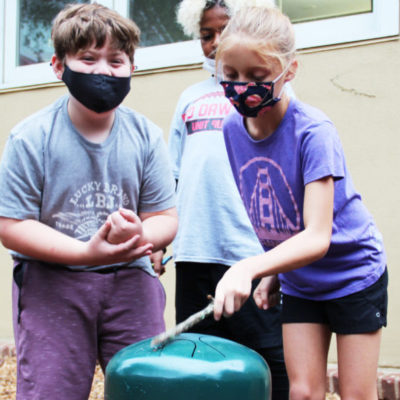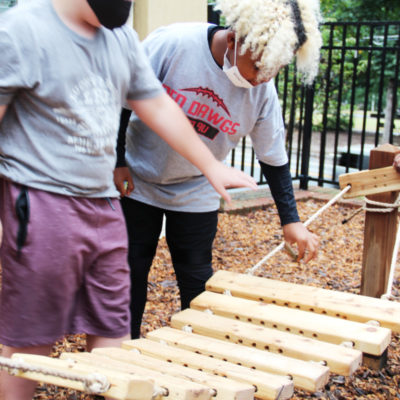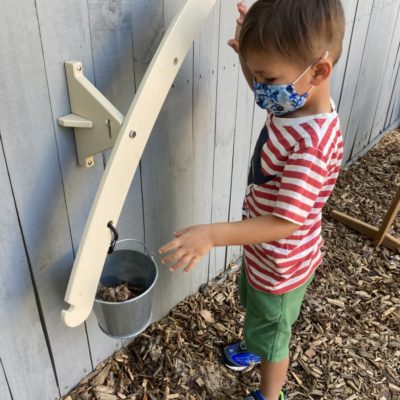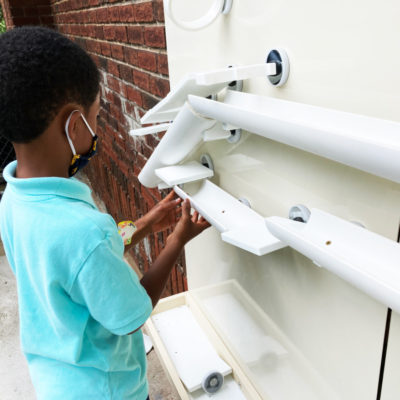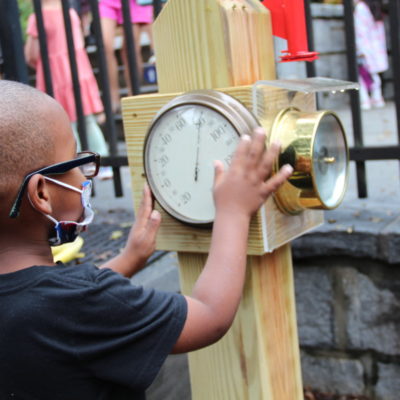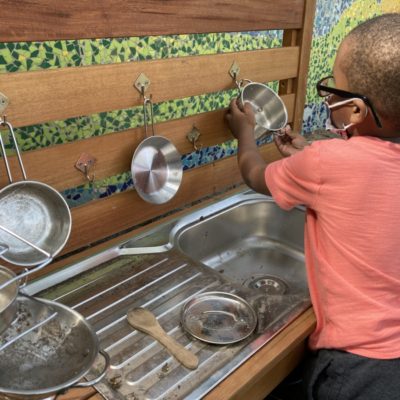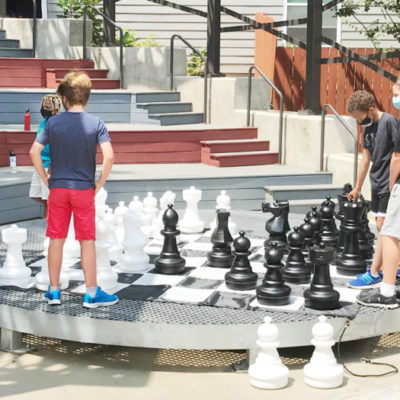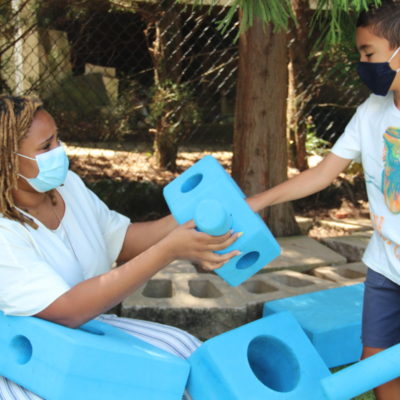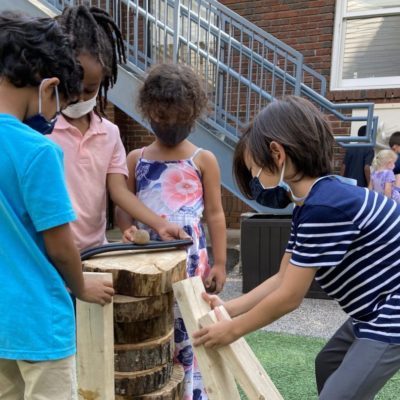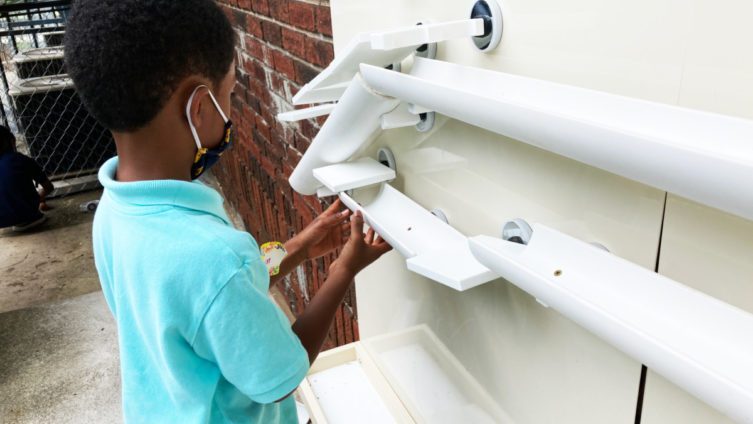
By STEAM Coordinator and Specialist Kelly Lyn
Thanks to funds from the Goizueta Foundation grant and the 2020 virtual auction paddle raise, TCS students have some new STEAM-themed equipment on our playgrounds!
These additional playground items support play in the areas of engineering, construction, strategy, imagination, music making, weather monitoring, aquaponics, and chicken tending and allow our students to incorporate STEAM activities into their usual games of tag, pick-up soccer and tetherball and exploring structures like the tea cup and blender during recess and fruit break.
Much of the equipment, including new sand boxes and a chicken coop, was installed over the summer. Students are using the equipment to build bridges with large wooden blocks, make mud pies with new outdoor kitchens, create complex marble runs on an all-weather magnet wall, examine found objects and insects under the new magnifying lens posts, create music in the musical garden, engineer roller coasters with ramps and runs in new sandboxes, monitor temperature and barometric pressure on a new weather station, organize forts with oversized blue blocks, challenge each other with our new mega chess set, design an aquaponics tank on the Gym building’s second-floor patio, and care for chickens while planning how to make the greatest impact in our community with the eggs and other produce that will be harvested.
The STEAM approach to learning is a mindset that focuses on providing opportunities for children to learn how to learn. Using equipment and projects in the domains of science, technology, engineering, arts, and mathematics, students are offered challenges to integrate their prior knowledge, construct new meaning, and reflect on their learning process. In this student-centered model of education, teachers are facilitators who ask powerful questions rather than give answers.
The STEAM Team, a group of faculty volunteers who were initially gathered to help craft the Goizueta grant proposal in 2017, helped design the newly installed STEAM gardens. The team meets to discuss how to support intentional integration of STEAM learning in classrooms, playgrounds and play spaces.


